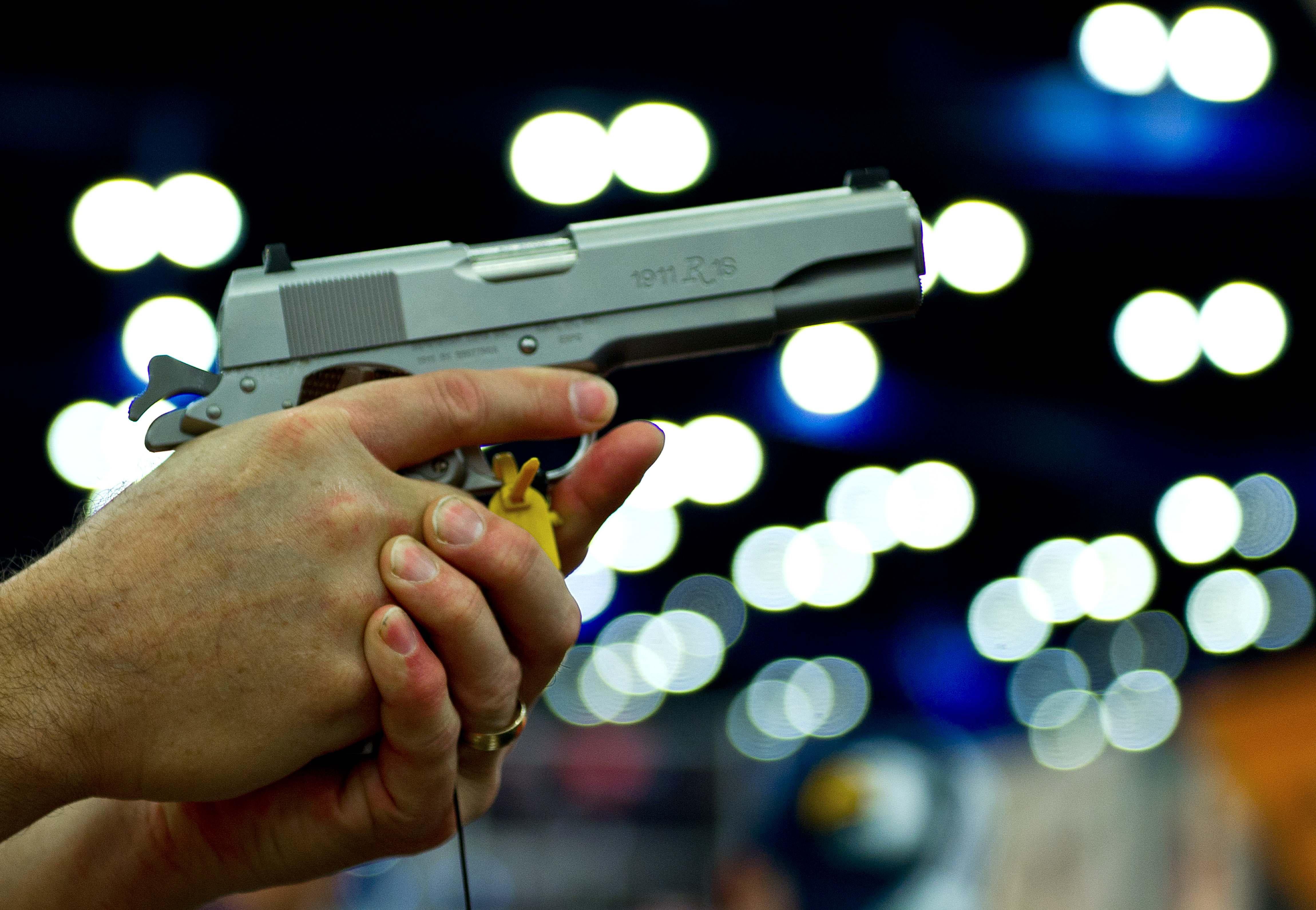Earlier today I wrote about a 3-year-old girl who shot and killed herself with her father’s handgun. Now I’m going to rotate the circle of life and ask a question that’s been on my mind for a couple of days: How does a 107-year-old man who is nearly deaf and legally blind get cleared to buy a handgun? That’s what I want to know after reading about Monroe Isadore, the Arkansas centenarian who died in a bizarre shootout with police last weekend. As Slate’s Daniel Politi wrote on Sunday, the trouble began when Isadore pointed a gun at two people in the house where he lived; the police were called, a shootout ensued, and Isadore was shot to death. A family friend told katv.com that Isadore had purchased the gun only a month earlier. That should not have happened.
If you’re 18 or over, it’s very easy to acquire a gun in Arkansas. You don’t need a permit, you don’t need a gun license, you don’t need to register the firearm with the state. All you need, apparently, is a valid credit card and a ride to Bass Pro Shops, and you can walk away with the gun of your choice.
But even the states with the most relaxed gun laws realize that, at a certain point, an individual’s right to bear arms is trumped by broader concerns over public safety. And, indeed, in Arkansas you can’t own a gun if you’ve been convicted of a felony, involuntarily committed to a mental institution, or are “adjudicated a mental defective.” These restrictions make sense: it’s a public health risk to put a gun in the hands of someone who is likely to be a danger to himself and others.
By all accounts Monroe Isadore was a peaceful, churchgoing man who was not mentally defective. But he was still 107 years old, unable to see and hear properly, and quite likely plagued by other infirmities. Even if his mind was sharp, he still lacked full command of his senses; even if he was able to hold a gun steady, he still would’ve had trouble knowing what he was shooting at. Some of Isadore’s friends have said that this weekend’s shootout happened because Isadore was disoriented and could not understand what was going on, which seems plausible given his age and apparent decrepitude. In order to safely operate a firearm, you need to be fully aware of your surroundings. Monroe Isadore was physically unable to be aware of his surroundings.
I think it’s clear that he shouldn’t have had a gun. But it’s not immediately clear how Arkansas could have stopped him. Many disability rights advocates believe it is discriminatory to stop people from bearing arms simply because they are blind or physically disabled. (There’s a big debate right now in Iowa over this very issue.) While several states require applicants to take a vision test in order to acquire a concealed-carry permit—Nebraska, South Carolina, others—I’m not aware of any state that bars you from owning a gun for home defense simply because you are old and blind.
You can see the dilemma here. It’s a bad idea to categorically bar the old and infirm from owning guns. But there also ought to be some way for states to weed out people like Isadore whose various health problems might make them a danger to others. This is basically the case for handgun licensing, which Arkansas does not have. In New York state, for instance, you have to apply for a license before you can carry a handgun; licensing officals look at each individual application, and, on a case-by-case basis, approve or deny permits based on their own discretion. This isn’t a perfect system, and it’s certainly subject to abuse, but it probably would have worked well enough to stop an easily disoriented, legally blind, 107-year-old man from buying a handgun, firing it at police, and dying unnecessarily.
